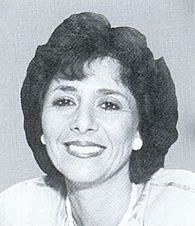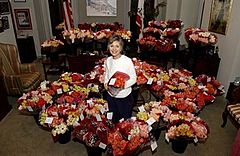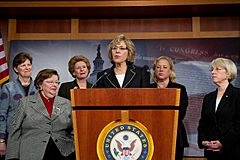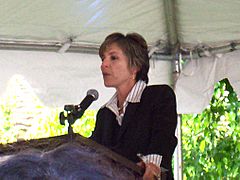Barbara Boxer facts for kids
Quick facts for kids
Barbara Boxer
|
|||||||||||||||||||||||||||||||
|---|---|---|---|---|---|---|---|---|---|---|---|---|---|---|---|---|---|---|---|---|---|---|---|---|---|---|---|---|---|---|---|
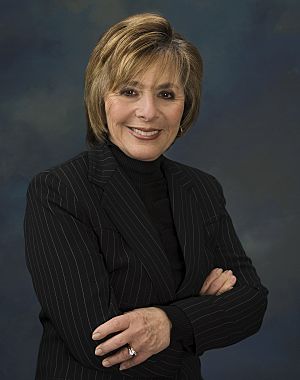
Official portrait, 2013
|
|||||||||||||||||||||||||||||||
| United States Senator from California |
|||||||||||||||||||||||||||||||
| In office January 3, 1993 – January 3, 2017 |
|||||||||||||||||||||||||||||||
| Preceded by | Alan Cranston | ||||||||||||||||||||||||||||||
| Succeeded by | Kamala Harris | ||||||||||||||||||||||||||||||
|
|||||||||||||||||||||||||||||||
| Member of the U.S. House of Representatives from California's 6th district |
|||||||||||||||||||||||||||||||
| In office January 3, 1983 – January 3, 1993 |
|||||||||||||||||||||||||||||||
| Preceded by | Phillip Burton | ||||||||||||||||||||||||||||||
| Succeeded by | Lynn Woolsey | ||||||||||||||||||||||||||||||
| Personal details | |||||||||||||||||||||||||||||||
| Born |
Barbara Sue Levy
November 11, 1940 New York City, U.S. |
||||||||||||||||||||||||||||||
| Political party | Democratic | ||||||||||||||||||||||||||||||
| Spouse |
Stewart Boxer
(m. 1962) |
||||||||||||||||||||||||||||||
| Children | 2 | ||||||||||||||||||||||||||||||
| Education | Brooklyn College (BA) | ||||||||||||||||||||||||||||||
Barbara Sue Boxer (born November 11, 1940) is a retired American politician who served as a U.S. Senator for California from 1993 to 2017. As a member of the Democratic Party, she was known for her strong liberal views. Before becoming a senator, she was a member of the U.S. House of Representatives from 1983 to 1993.
Born in Brooklyn, New York, Boxer later moved to California. She started her career as a journalist and an aide to a congressman. She was elected to the U.S. House of Representatives in 1982.
In 1992, Boxer was elected to the U.S. Senate. During her time as a senator, she and her colleague Dianne Feinstein became the first pair of women to represent a state in the Senate at the same time. In 2004, she won her re-election with almost 7 million votes, a record at the time. After retiring from the Senate in 2017, she began working as a lobbyist, which means she works to influence political decisions on behalf of different groups.
Contents
Early Life and Education
Barbara Sue Levy was born in Brooklyn, New York City. Her parents, Sophie and Ira Levy, were a Jewish couple. She went to public schools and graduated from George W. Wingate High School.
In 1962, she married Stewart Boxer. In the same year, she earned a degree in economics from Brooklyn College. Three years later, she and her husband moved to California, where she would begin her career in politics.
Beginning a Career in Politics
Before entering politics, Boxer worked as a stockbroker. In the 1970s, she worked as a reporter for a newspaper called the Pacific Sun. She also worked as an aide for Congressman John L. Burton.
In 1976, Boxer was elected to the Marin County Board of Supervisors. She served on the board for six years and became its first female president. This was her first major step into a life of public service.
U.S. House of Representatives (1983-1993)
In 1982, Boxer was elected to the United States House of Representatives. She represented California's 6th district for ten years. Her campaign slogan was "Barbara Boxer cares."
During her time in the House, she was part of a committee focused on children, youth, and families. In 1991, she led a group of congresswomen to the Senate Judiciary Committee. They demanded that the all-male committee take seriously the accusations made by Anita Hill against a Supreme Court nominee.
U.S. Senator for California (1993-2017)
In 1992, Boxer ran for the U.S. Senate and won. This was a big year for women in politics, and it was sometimes called the "Year of the Woman." She was re-elected three more times, in 1998, 2004, and 2010.
As a senator, Boxer served on several important committees. These included committees on the Environment, Foreign Relations, and Ethics. She was a leader in the Democratic Party and helped gather votes for important laws. Boxer chose not to run for re-election in 2016 and was succeeded by Kamala Harris.
Questioning the 2004 Election
In 2005, Boxer formally objected to the presidential election results from Ohio. She wanted to draw attention to problems in the voting system. The Senate and the House both voted against her objection, but it started a national conversation about election fairness.
Views on the Iraq War
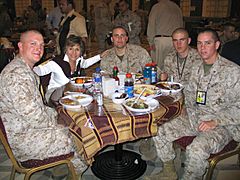
In 2002, Boxer voted against giving President George W. Bush the power to use military force in Iraq. She was a strong critic of the war in Iraq.
In 2007, she questioned Secretary of State Condoleezza Rice about a plan to send more troops to Iraq. Boxer argued that it was American soldiers and their families who paid the real price for decisions made in Washington, D.C. She was known for asking tough questions of government officials.
Key Political Stances
Boxer was known for her progressive views on many issues. She was often called a "liberal lion" for her strong beliefs.
Protecting the Environment
Boxer was a champion for the environment. She led the fight in the Senate to stop oil drilling in the Arctic National Wildlife Refuge. She also introduced the National Oceans Protection Act to help protect the oceans. She sponsored a law that protected over 275,000 acres of land in Northern California as wilderness.
Supporting Women's Health
Boxer was a strong supporter of women's health and reproductive rights. She wrote a Patients' Bill of Rights and fought for access to health care. She also supported funding for medical research to find cures for diseases like HIV/AIDS, diabetes, and Alzheimer's.
Gun Laws
Boxer supported stricter gun laws. She helped pass a federal ban on certain types of semi-automatic firearms. After the 2016 Orlando nightclub shooting, she called for "common-sense gun safety laws" to protect communities.
LGBT Rights
Boxer was an early supporter of LGBT rights. In 1996, she was one of only 14 senators who voted against the Defense of Marriage Act, a law that defined marriage as between a man and a woman. She later became a strong supporter of same-sex marriage.
Life After the Senate
After retiring from the Senate in 2017, Boxer began a new career. She gives paid speeches and works as a lobbyist for a company called Mercury Public Affairs. A lobbyist is someone who is hired to represent a group's interests to the government.
In 2021, Boxer briefly registered to work for a Chinese technology company called Hikvision. The company was criticized for its connection to human rights issues. After people expressed concern, Boxer announced she would no longer work for the company.
Personal Life
Barbara and her husband, Stewart Boxer, have two children, Doug and Nicole. In 1994, her daughter Nicole married Tony Rodham, the younger brother of Hillary Clinton, in a ceremony at the White House. They have one son, Zachary.
In 2006, the Boxers moved from Northern California to Rancho Mirage in Southern California.
See also
 In Spanish: Barbara Boxer para niños
In Spanish: Barbara Boxer para niños
- Women in the United States House of Representatives
- Women in the United States Senate
 | Selma Burke |
 | Pauline Powell Burns |
 | Frederick J. Brown |
 | Robert Blackburn |


